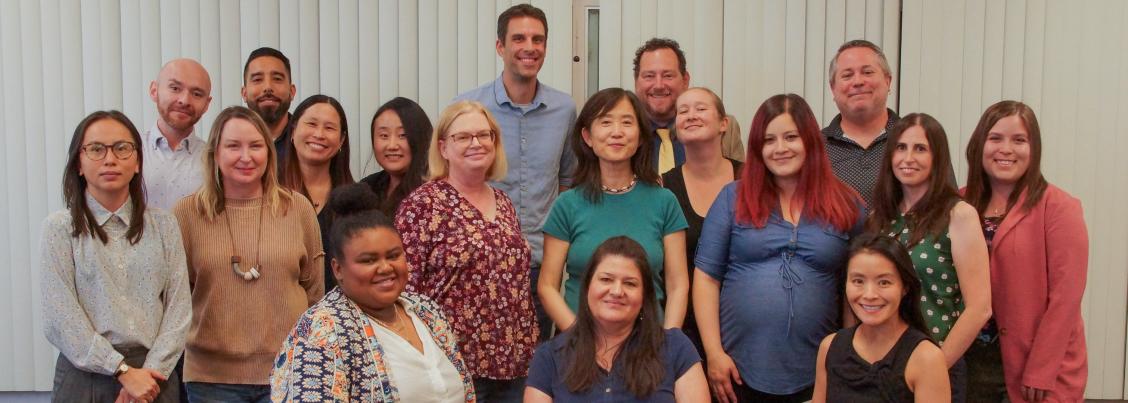Applications are now OPEN for the 2025-2026 school year.
Deadline: January 15th
NOTE: The posted University Application deadline is later than the Department Application deadline. However, both university and department materials must be submitted by the posted Department deadline of January 15th.
GRE Scores are not required and will not be accepted for Fall 2025 Applications
![]()
What is Psychological Science?
Want to know more about our program? Look for our Virtual Open House later this fall!
We will be hosting a Virtual Open House for students considering applying to our program! This event will include an overview of our program and an introductions to our faculty. Attendees will have a chance to rotate through different rooms to meet faculty and members of their labs to learn more about ongoing research. Attendees will also have the opportunity to hear from a panel of current graduate students and to ask any remaining questions they have to the faculty and program directors.
- Time and Date: TBD
- LocationL: Zoom (Link TBD)
What can I do with a Psychological Science degree?
Our graduate students have also gone on to employment at California State University, Dominguez Hills, California State University, Northridge, California State University, San Bernadino, Kansas State University, Moorpark College, Nova Southeastern University, University of Pittsburgh, Rand, Loyola Marymount, University of Florida, and University of Southern California
What do I need to apply to the Psychological Science Program?
Non-psychology majors who would otherwise be acceptable to our program are urged to qualify themselves for admission by completing the requirements in our Graduate Handbook. Applicants whose background differs from that of the typical applicant to our program should consider having two of the required three letters of recommendation provided by faculty members from whom they took upper division courses in psychology.
How do I apply to the Psychological Science Program?
Please note that the Psychological Science and Clinical MA programs have a shared application. For additional information and to access the application please visit our Application Page.For More Information:
- Contact the program co-directors: Dr. Drew and Dr. Berzenski
- If you have further questions, contact the Psychology Department.
Program Overview
Similar to many doctoral programs, our program matches each admitted student with a faculty mentor based on mutual research interests. Applicants rank up to 3 potential faculty mentors in their applications to the program. Students will work in their mentor’s research lab and receive guidance on their thesis project. As admission to the program depends in part on fit with a faculty mentor, students are strongly encouraged to review program faculty bios (see “Program Faculty” below) for more information on their areas of expertise and interest. Potential applicants may also wish to contact program faculty mentors prior to applying if they have questions about their work, interests, or available opportunities.
Course Curriculum for Master of Art in Psychology
Professional Development (2 units over 2 semesters) |
PSY 500 Seminar in Professional Development (1/1) |
Univariate Statistics (3 units) |
PSY 485US/S Univariate Statistics and Lab (3/2) |
Multivariate Statistics (9 units) |
PSY 524/L Multivariate Analysis Computer and Lab (3/1) PSY 534/L Latent Variable Analysis and Lab (3/2) |
Advanced Research Methods (3 units) |
PSY 692A Seminar in Research Methodology (3) |
Advanced Psychological Theory (6 units from Options below) |
PSY 512/612 Graduate Seminar in Developmental Psychology (3) PSY 525/625 Graduate Seminar in Psychological Testing (3) PSY 540/640 Graduate Seminar in Social Psychology (3) PSY 591A/691A Graduate Seminar in Cognition (3) PSY 690A Graduate Seminar in Advanced Sensation & Perception (3) |
Electives (6 units) |
Students must take 6 or more academic units at the 400- (by permission), 500- or 600-level |
Thesis (6 units over 2 semesters) |
PSY 698 Thesis or Graduate Project (3/3) |
Total Units for the M.A. Degree in Psychology: 37 units |
Additional program requirements can be found online in the University Catalog
Program Faculty
Our faculty have earned doctoral and graduate degrees (i.e., M.A., M.S., M.Ed., J.D.) from California State University-Long Beach, California State University-Northridge, Florida International University, Northwestern, Oklahoma State University, Northwestern Oklahoma State University, University of California-Davis, University of California-Irvine, University of California-Los Angeles, University of California-Santa Barbara, University of California-Santa Cruz, University of California-Riverside University of Colorado-Boulder, University of Illinois-Chicago, the University of Illinois at Urbana-Champaign, University of Chicago, State University of New York at Buffalo and the University of Nebraska. You can view a current lift of current faculty below.
Alyssa Arentoft (*not accepting Psych Science students for fall 2024)
Sara Berzenski (Program Director)
Stefanie Drew (Program Director)
Scott Plunkett (*not accepting new graduate students)
Omar Ruvalcaba (*only accepting students through the Clinical Fieldwork Track)
Holli Tonyan (*not accepting graduate students 2022-2025)
Recent Emeritus
Donald Butler
Jerry Shaw
Michele Wittig




